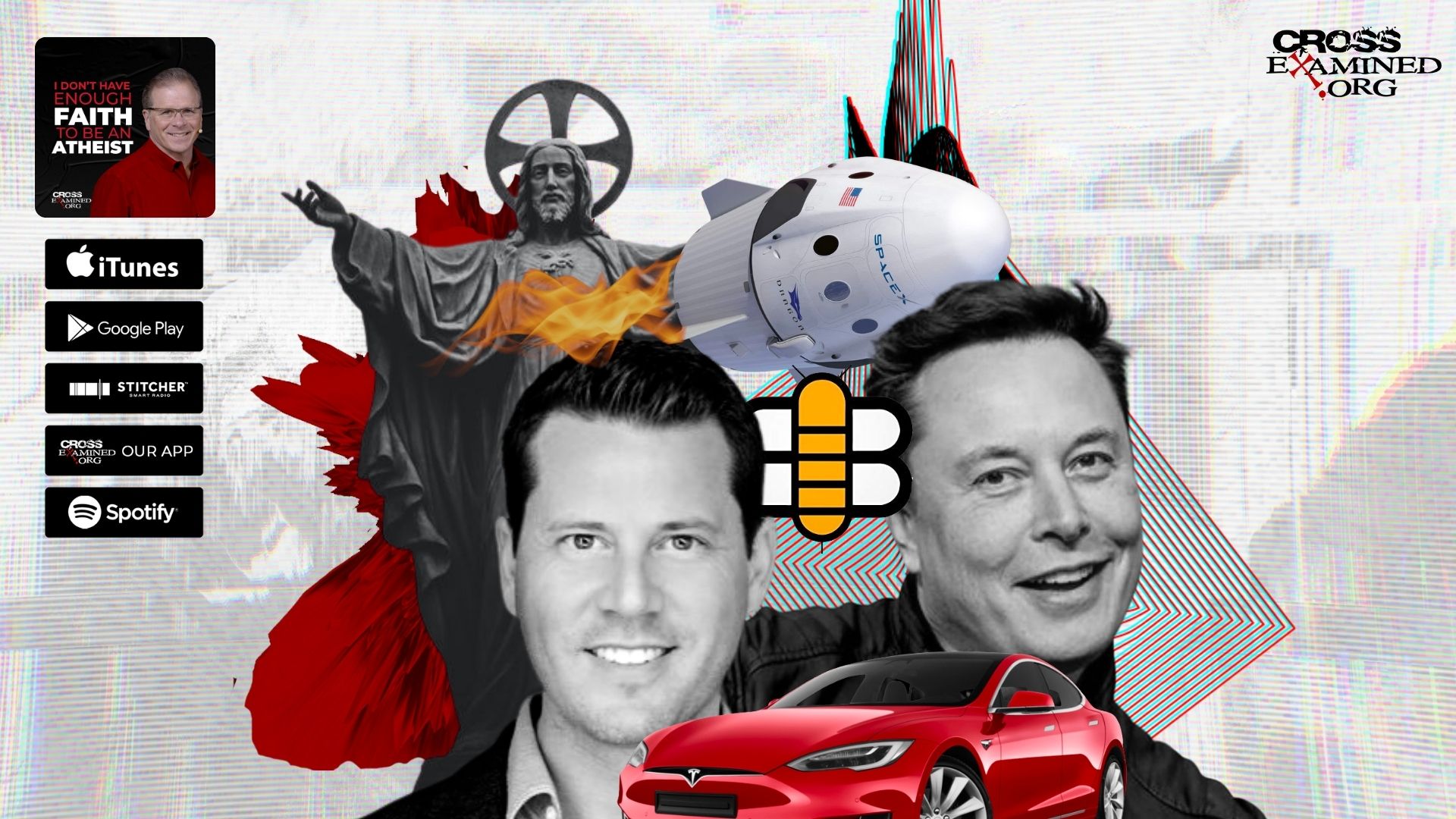The Christmas Story – Beyond Apologetics
Experiencing the Christmas Story
Every December, I see a couple of approaches to Jesus’ birth on Christian blogs: Articles that approach the Christmas story from the perspective of “How Jesus came to Earth,” looking at it in light of what the Gospels tell about who Jesus turns out to be. Or, you get an apologetics approach that engages naturalistic objections to miracles like the virgin birth.
If you’re like me, you’ve often talked about the possibility of miracles or the historicity of the Bible around Christmas time. But what we don’t often realize, is that we can get so distracted by historical or philosophical questions in our 21st-century context, that we can miss out on what the Gospel authors are saying through the infancy narratives.
Beyond Apologetics
This year, I want to do something different and go beyond apologetics. What’s the message of the infancy materials? In this post, I’ll share one key thing everyone should know about Christmas—something that’s often overlooked: The Christmas story communicates that God keeps his promises. [1]
First, I’ll highlight Elizabeth’s story in the Gospel, according to Luke. Then, I’ll focus in on Mary’s story in the same Gospel. Finally, I want to give you two video resources that will help you dive deeper and better experience the Christmas story afresh this year.
But try something with me before we move on: Set any skepticism about miracles (or even ideas about Jesus’ deity) to the side for a moment and imagine what it would be like for two unsuspecting people to see the Christmas story unfolding around them. What would they be thinking?
God Keeps His Promises
An old woman gets pregnant–even though she never had kids before (Luke 1:5-25)
Most first-century Jews believed God created everything and interacted with people. So, to them, an old woman getting pregnant or a virgin conceiving a child apart from modern medical techniques were just minor miracles compared to the creation of the universe out of nothing. In other words: If God’s real, miracles are possible.
And that’s how the Christmas story begins; with miracles. An angel tells a priest named Zachariah that his wife, Elizabeth, would have a kid–even though she was way too old to have kids naturally. I recently had a conversation with my mentor, Darrell Bock, who explained what you’re supposed to get from the story of Zachariah’s skepticism. He put it like this:
Basically the angel says, “Well, you’re going to be quiet until you see God pull off his word. It’s designed to be a lesson to say, “If God promised this if God says this is gonna happen, this is gonna happen…You’re gonna watch it happen. You’re not gonna be able to speak or hear. You can have a little time to reflect on the fact that when God says it’s gonna happen, it’s gonna happen.
Don’t miss Elizabeth’s faith in contrast to her husband. She was marginalized in society because she couldn’t have kids, but then she says with confidence: “This is what the Lord has done for me at the time when he has been gracious to me, to take away my disgrace among people” (Luke 1:25).
After the baby’s born, they name him “John” (that was culturally weird since no one else in the family was named John), and Zachariah can finally talk again. He sings a song about John the Baptist’s role, pointing people to Jesus—the central figure of God’s plan to redeem and restore his people (Luke 1:67–79). But a bigger miracle’s about to happen.
A young teen gets pregnant–even though she never had sex before (Luke 1:26-36)
Mary was probably way younger than most nativity scenes make her seem. First-century Jewish girls were usually betrothed between the ages of 12 and 14! Guys were betrothed between the ages of 18 and 25 but the girls got married pretty young.
And Jesus’ conception was pretty unusual, too. The angel tells Mary her baby will reign forever; he’ll be called the Son of God. Most Christians immediately go, “I get it. Jesus is divine.” But what about people who don’t know the end of the story? What did Mary think when she heard what her baby was gonna be called?
She probably thought, “My baby’s the promised Messiah who’ll deliver God’s people.” In the Jewish Scriptures, “Son of God” often referred to kings (2 Samuel 7:14). Mary’s going, “Somehow, my son’s gonna be a king.” Her big takeaway was, “God’s keeping his promise to Israel through me!” But she still had a lot to learn about who Jesus would turn out to be.
Luke 1 is kind of like a musical in some ways because then, Mary sings her own song—a song that’s got Old Testament language all over it (Luke 1:46–56). And the lyrics are all about how God’s gonna restore Israel and defeat the people who are oppressing them. Don’t miss Mary’s example of faith. She probably didn’t think her baby was “Little Lord Jesus, no crying he makes” (Not sure what Mary would think about that Christmas song)! Yet, she willingly took up the challenge of bearing a very unique child in very unusual circumstances.
So an angel predicted Elizabeth, an old woman who wasn’t able to have kids her whole life, would get pregnant–and she does. Then the angel told Mary, a young girl who’s never had sex, that she’ll conceive a child supernaturally–and she does. Strange stuff is afoot. Strange stuff pointing to a pretty unique baby–a pretty unique way for God to fulfill his promises to Israel and bless the world.
A key message of the Christmas story that’s often overlooked is God keeps his promises. This is one reason Christianity isn’t about blind faith. It’s reasonable to put your trust in someone who is trustworthy.
Here’s the Point
The Christmas story is meant to show God keeps his promises–even if he ends up doing it in unexpected and unusual ways. Weird stuff happening told ancient readers God was up to something special. Experiencing this unfolding drama in the Gospels is part of the wonder of the season. You look at Mary and Elizabeth, and you see their faith. They trust God and recognize his grace to them. May we do the same. Merry Christmas!
[1] THESE INSIGHTS CAME FROM A SERIES OF CONVERSATIONS WITH MY MENTOR, DARRELL BOCK, AND A COUPLE OF OTHER NEW TESTAMENT SCHOLARS AT DALLAS THEOLOGICAL SEMINARY. SEE THE VIDEOS BELOW.
[hr]
Videos on Experiencing the Christmas Story
Here are two video resources that can help you go deeper and experience the Christmas story afresh. The first is a chapel discussion I facilitated, and the second is a podcast I hosted. A transcript is available for the podcast here. Both videos are brought to you by Dallas Theological Seminary.
Experiencing the Christmas Story – Chapel
Recommended resources related to the topic:
How Can Jesus be the Only Way? (mp4 Download) by Frank Turek
Cold Case Resurrection Set by J. Warner Wallace (books)
World Religions: What Makes Jesus Unique? mp3 by Ron Carlson
The Bodily Nature of Jesus’ Resurrection CD by Gary Habermas
Historical Evidences for the Resurrection (Mp3) by Gary Habermas
The Jesus of the Old Testament in the Gospel of John mp3 by Thomas Howe
Mikel Del Rosario helps Christians explain their faith with courage and compassion. He is a doctoral student in the New Testament department at Dallas Theological Seminary. Mikel teaches Christian Apologetics and World Religion at William Jessup University. He is the author of Accessible Apologetics and has published over 20 journal articles on apologetics and cultural engagement with his mentor, Dr. Darrell Bock. Mikel holds an M.A. in Christian Apologetics with highest honors from Biola University and a Master of Theology (Th.M) from Dallas Theological Seminary, where he serves as Cultural Engagement Manager at the Hendricks Center and a host of the Table Podcast. Visit his Web site at ApologeticsGuy.com
Original Blog Source: http://bit.ly/35RPhOM












Leave a Reply
Want to join the discussion?Feel free to contribute!